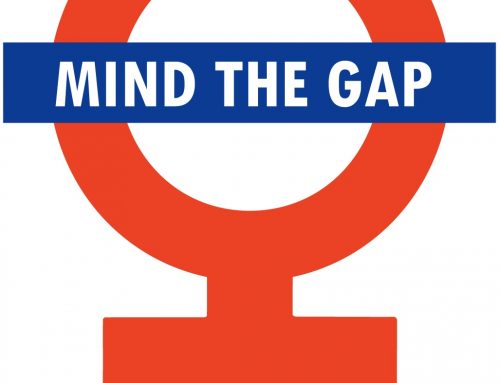We’ve talked before in the blog about ways women can advance in their careers. Some traditional advice has suggested finding a mentor. In recent years, there has been more advocacy for a sponsor either as an extension of the mentor relationship, or an entirely new one. While it seems like the two roles are the same, there is a subtle difference. A mentor provides advice, can help articulate goals and a vision for one’s career. Additionally, a mentor can help navigate the intricacies, unwritten rules, and politics of a firm or industry. Mentorship in this definition suggests a more passive and private relationship. Sponsorship, on the other hand, is true advocacy and an active supporter of one’s career. Sponsors help increase visibility within a firm, provide a connection to career opportunities, and literally promote the individual. It has been suggested that sponsorship is a better strategy for women to advance in the workplace, given that its outcomes will result in real change in a woman’s career. From our WE Interviews series, Lori Massad has an interesting take on the relationship:
“Massad is adamant that mentoring relationships are insufficient at propelling the careers of high-potential executives. ‘I feel that mentoring has little impact on women’s progression,” Massad stated. ‘Women look for mentors, while men find sponsors. A mentor gives advice, but a sponsor advocates for you. A sponsor will put their credibility on the line for you.’ For women to advance their careers, Massad strongly believes that they must aggressively seek out sponsors. ‘But,’ she cautioned, ‘sponsorship is a two-way street. In order to get someone to advocate for you, you have to do something for them.'”
How to Find and Work with a Sponsor
Finding someone with real power to advance one’s career is a strategic decision. It is more important to identify someone effective as opposed to someone whose personality is a good fit. Within an organization, professionals a level or two above may be a place to start. If it’s a smaller firm, the founder or CEO might be more appropriate. The sponsor does not necessarily have to be a woman. In the words of WE Interviewee Kelly Williams:
“My mentors were almost always men, except for one. I think that’s due to the industries in which I’ve worked: project finance infrastructure and then private equity. There weren’t a lot of women. When I mentor people I tell them, ‘You have no other job than to make your boss look good. If you make your boss look good, he or she becomes very invested in your success, because their success is absolutely linked to yours. They will bring you along, and they become part of the cadre that sings your praises. They want people to know how great you are.’ ”
Protégés should exhibit critical thinking and leadership skills and be willing to share creative ideas to change processes or make improvements. Lastly, a sponsor relationship can often evolve into a mentoring one. The key is reciprocity – the protégé-sponsor relationship is one of give and take. Christine Todd, one of our recent WE Interviews, describes it thusly:
“I believe in mentoring only to the extent that it evolves naturally,” Todd said. “The experiences that I’ve had where there’s been a formal match-up in the women’s initiative-type situation have been fine, and I’ve mentored both men and women in that formal capacity, but it goes back to that premise of being real. There’s so much that goes into successful mentoring, and a lot of it is just chemistry. And that chemistry can’t be manufactured, nor can it be matched up like a dating service. If the relationship doesn’t develop naturally, it’s not as successful, despite the efforts that are genuinely made by both parties.”
The Benefits of a Protégé
Professional women supporting each other is a crucial part of closing the gender gap. Women who have achieved success and wish to promote others will find that a sponsor-protégé relationship has benefits for them. According to Sylvia Ann Hewlett’s book, Forget the Mentor, Find a Sponsor, a protégé is someone who consistently outperforms, is loyal to the sponsor and the organization, and contributes a unique set of skills. This person makes the executive look better by delivering results in exceptional ways: different perspectives, personal brand building, and establishing a legacy. Additionally, having a number of protégés can benefit the executive. Managers who sponsored professionals earned an average of $25,000 more per year than peers who didn’t. Hewlett relays a conversation she had with a CEO who questions all potential hires about how many protégés they have cultivated:
When choosing his direct reports, he asks: “How many blazing talents have you developed over the years and put in top positions across the company, so that if I asked you to pull off a deal that involved liaising across seven geographies and five functions, you’d have the bench strength — the people who ‘owe you one’ — to get it done?”
Of course, there is some risk to the sponsor. You may go out on a limb to advocate and promote someone with no guarantee that it will be a success. But from an altruistic perspective, it is certainly the right choice to work with and cultivate talent. Providing confidence and leadership skills to female professionals may go farther to closing the gender gap than any book or conversation will.
Resources:
Hewlett, Sylvia Ann. Forget the Mentor, Find a Sponsor: The New Way to Fast Track Your Career. Harvard Business Review Press, Boston, 2013.






